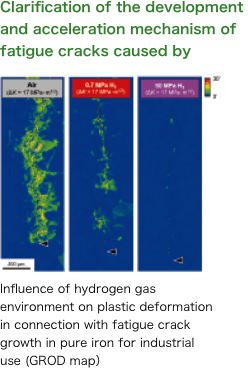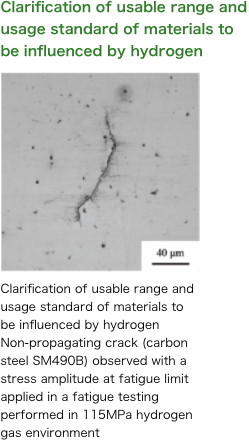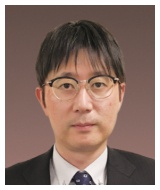Fatigue & Fracture
Aiming at greater dissemination of hydrogen stations and fuel cell vehicles, the expansion of steel materials that can be used in high-pressure hydrogen equipment is being pursued. However, we are still not ready for full-fledged commercial use. The technology and knowledge needed to safely utilize low-cost and versatile metallic materials is demanded. The Department of Fatigue and Fracture is investigating the various strength characteristics of each metallic material in hydrogen gas environments with the aim of enabling the selection of a material and design that can satisfy safety and cost requirements in the possible temperature/pressure fields in hydrogen stations. We are conducting a wide range of research, from fundamental studies to application, including studies of the mechanism of the influence of hydrogen on these materials.



H. Matsunaga
Outline of Activities
Discipline: Metal fatigue, Hydrogen embrittlement
Prof. Matsunaga has been studying metal fatigue for more than 20 years. Since he joined Kyushu University in FY2012, his research has been focused on the degradation of strength in metallic materials and the clarification of the underlying mechanism in hydrogen environments, for the purpose of contributing to the realization of a safe, secure and low-cost hydrogen society. In addition, as a member of the NEDO project Research and Development on the Introduction of New Criteria to Judge Hydrogen Characteristics (FY2018-2022), he is working on research and development of ultra-high pressure hydrogen technology, etc. for hydrogen refueling stations (HRS) to prepare for possible challenges we may face when HRS are widely adopted. He has also been actively engaged in the promotion of revising hydrogen material standards, reviewing planning and joint research with businesses inside and outside Japan.